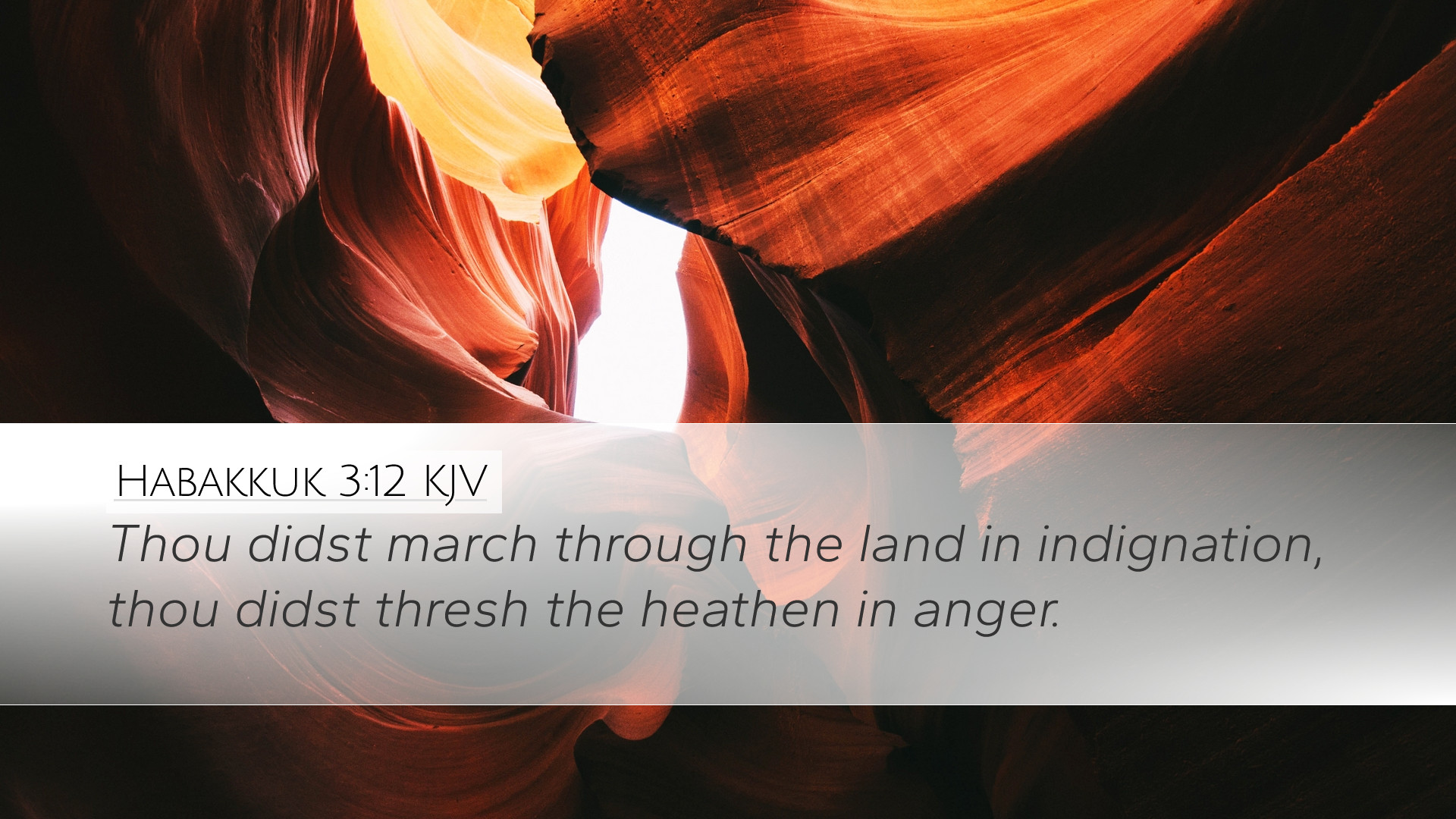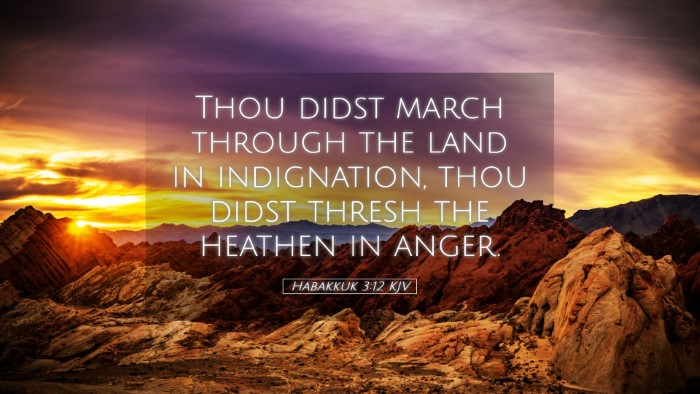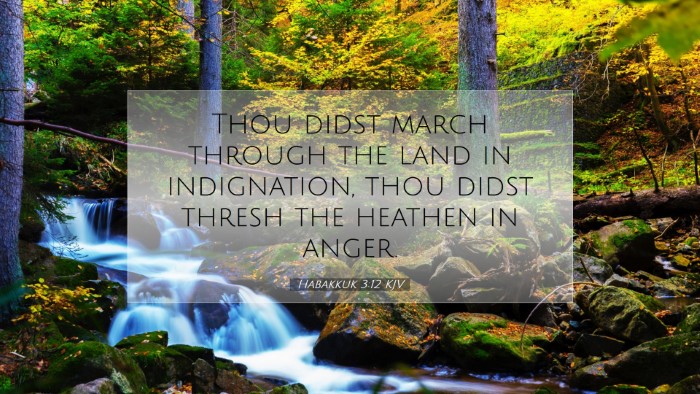Old Testament
Genesis Exodus Leviticus Numbers Deuteronomy Joshua Judges Ruth 1 Samuel 2 Samuel 1 Kings 2 Kings 1 Chronicles 2 Chronicles Ezra Nehemiah Esther Job Psalms Proverbs Ecclesiastes Song of Solomon Isaiah Jeremiah Lamentations Ezekiel Daniel Hosea Joel Amos Obadiah Jonah Micah Nahum Habakkuk Zephaniah Haggai Zechariah MalachiHabakkuk 3:12
Habakkuk 3:12 KJV
Thou didst march through the land in indignation, thou didst thresh the heathen in anger.
Habakkuk 3:12 Bible Commentary
Commentary on Habakkuk 3:12
Text of the Verse: "Thou didst march through the land in indignation, thou didst thresh the heathen in anger."
Introduction
Habakkuk 3:12 is a vivid depiction of God's active role in history, particularly in executing judgment. This verse captures the prophet's acknowledgment of God’s powerful involvement in the affairs of nations, wherein God is portrayed as a warrior on a divine mission. The imagery of marching and threshing emphasizes vigorous action, compelling the reader to recognize the seriousness of divine judgment.
Historical Context
The book of Habakkuk is set during a tumultuous period of Israel’s history, when the Babylonian threat loomed large. The prophet engages in a dialog with God, questioning the rationale behind the prosperity of the wicked and the suffering of the righteous. In Chapter 3, Habakkuk shifts from questioning to praising God, reflecting on His past actions and affirming His sovereignty.
Exegesis of the Verse
Matthew Henry notes that in this verse, the language portrays God as one who takes a decisive stance against the nations. The phrase "march through the land" suggests a systematic sweeping action, indicating divine judgment that cannot be thwarted. The "indignation" of God reflects His righteous wrath against sin and injustice.
Albert Barnes emphasizes that the "threshing" of the heathen is a metaphor for God's judgment resulting in separation—much like wheat is separated from chaff during harvest. This imagery underlines not only the power of God’s actions but also the finality of his judgment, separating the righteous from the wicked.
Adam Clarke draws attention to the anthropomorphic language used here to depict God’s actions, portraying Him in terms that humans can relate to, thus making God's magnificent might more graspable. The actions of 'marching' and 'threshing' convey a dynamic God intervening in history decisively.
Theological Implications
- The Sovereignty of God: This verse addresses the sovereignty of God over all nations. It serves as a reminder to believers that despite apparent chaos and injustice, God is actively in control and will bring about justice in His timing.
- God’s Wrath Against Sin: The image of divine indignation highlights the seriousness with which God views sin and injustice. Understanding this helps believers appreciate the gravity of turning away from sin.
- The Assurance of Judgment: Habakkuk's assurance that God will act against the nations provides comfort to the faithful, reminding them that God sees injustice and will not leave it unaddressed.
Application for Believers
This verse serves as a call to reflect on the might and majesty of God. Believers are encouraged to take heart in difficult times, resting in the assurance that God is at work even when circumstances seem dire. Furthermore, the call for justice compels believers to align themselves with God's heart and to advocate for righteousness in a world often dominated by injustice.
In practical terms, this means engaging in prayer, seeking God's guidance, and actively participating in social justice. The understanding that God is a warrior against injustice prompts believers to embody His character in their actions and to confront evil wherever it appears.
Conclusion
Habakkuk 3:12 encapsulates a powerful declaration of God's active judgment and sovereignty. Drawing from the insights of esteemed commentators, it becomes evident that this verse speaks profoundly to the nature of God’s involvement with the world. It encourages believers to trust in God's righteousness and to live in a manner that reflects His glory amidst a world in turmoil.


